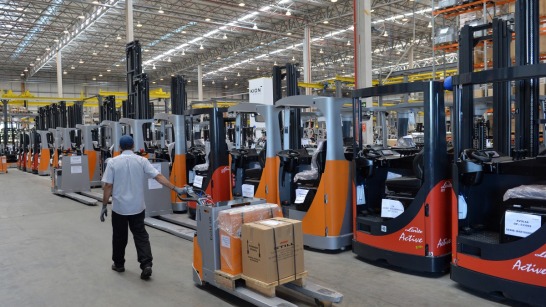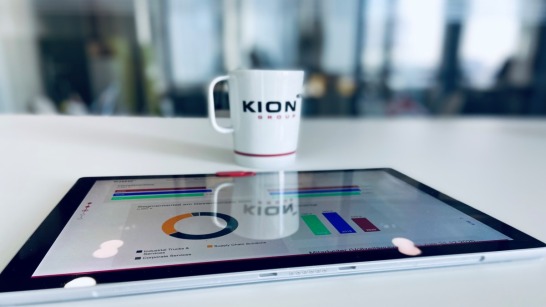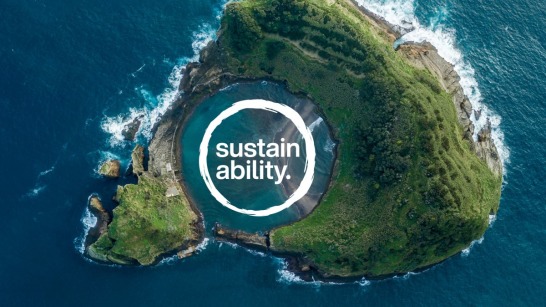Suppliers

We attach great importance to building and maintaining cooperative relationships with our suppliers. Transparency creates a reliable basis. That is why we provide a wide range of important information for suppliers as downloads in this section:
- General Terms and Conditions of Purchase (incl. Compliance, Sustainability, Human and environmental rights, Environmental product requirements, Conflict minerals and critical raw materials, Reduction of greenhouse gas emission, Life cycle analysis and circular economy)
- Supplier portal e-source
- Supplier Invoicing
- Electronic Data Interchange
- Production Part Approval Process (PPAP)
- External Tooling Approval Process (ETAP)
- Logistics Terms and Conditions
General Purchasing Conditions

The General Purchasing Conditions form an integral part of contracts between suppliers and KION GROUP AG and its subsidiaries.
Compliance
The requirements for our suppliers are set out in the KION Group Supplier Code of Conduct.
Downloads
Additional links
Sustainability for suppliers
Sustainability is an integral part of KION's strategy, and we are working with our suppliers to establish this understanding throughout the supply chain. The Supplier Sustainability Department works on and supports various sustainability topics at KION:
- Human and environmental rights,
- Environmental product requirements (REACH, ROHS, TSCA, PFAS, EU-WFD, POP),
- Conflict minerals and critical raw materials,
- Greenhouse gas (GHG) emission reduction,
- Life-cycle-analysis (LCA) and circular economy.
KION Group uses various third-party tools to survey the topics mentioned in “general purchasing conditions”. We ask the requested suppliers to participate in these assessments.
Download
Training Video
Our supplier training video (30 minutes) provides you with background information.
Human and environmental rights
We have implemented a three-step risk management system that enables the assessment of our suppliers' compliance with human and environmental rights. Using a specialized software-as-a-service (SaaS) platform, the following steps are implemented:
- Suppliers are screened to understand their inherent sustainability risk profile based on country, sector and commodity;
- Selected suppliers will be asked to complete a self-assessment questionnaire to determine the maturity level of their activities in terms of compliance with human and labor rights and environmental protection;
- After analyzing the results and potential risks along our supply chain, we work with our suppliers to develop improvement measures. We also consider the supplier's circumstances, size, and industry. Our Supplier Sustainability Department is available to provide advice and support.
The risk assessment is also part of our supplier evaluation and can be included in the supplier selection process.
Start Supplier Assessment
Environmental product requirements, conflict minerals and critical raw materials
Environmental product requirements are legal minimum requirements for products that prohibit and/or limit the use of certain raw materials that are harmful to humans and the environment.
As an internationally operating company, we must comply with various regulations, including:
- EU REACH-SVHC,
- EU Waste Framework Directive,
- EU RoHS,
- EU Battery Directive,
- US Conflict Minerals,
- US TSCA,
- EU POPs,
- PFAS.
We request the necessary information from our suppliers via our Assent platform after their initial registration as a supplier.
Compliance with these requirements is essential and a prerequisite for cooperation.
Downloads on the subject of 'conflict minerals'
Reduction of Greenhouse Gas Emission
In 2024, we have committed to emission reduction targets under the SBTi initiative and had them validated.
We also rely on our suppliers to reduce our own CO2 emissions. We have therefore launched the PACER project, with which we aim to motivate and empower our suppliers to calculate their own CO2 emissions and develop a plan to reduce them. Only together can we achieve our countries' climate targets.
A query of CO2 data may also be relevant within the framework of CBAM (EU Carbon Border Adjustment Mechanism) if you are a supplier of affected material groups.
Life cycle analysis and circular economy
Life Cycle Analysis (LCA) is an internationally recognized and standardized method used to calculate a product's environmental impact. KION conducts this analysis for selected products and requires information from suppliers regarding recycled content, production processes, and similar aspects. The goal is to use this information to optimize and reduce the ecological footprint of our products.
Circular economy (cradle-to-cradle; C2C) describes a model in which every component of a product can be used as a raw material for another product instead of being scrapped or disposed of at the end of its life.
Training Video
KION offers training on the topics of LCA and C2C.
Supplier Portal e-source

KION e-source is our web-based tendering and supplier management platform that brings all relevant departments and suppliers together in one virtual place and enables us to collaborate digitally.
With our supplier portal KION e-source, you will be able to
- independently update your company's data & contact persons,
- enable yourself to participate and be considered for suitable tenders in the future and receive invitations and access to electronic RFQs,
- gain easier access to performance indicators,
- receive more targeted, efficient two-way information exchange using state-of-the-art interactive templates and workflows,
- immediately view results of joint activity.
Further information about e-source
What`s in for me? - Change Story
Take a look at our Change Story and experience selected use cases. Enjoy the journey!
Guidance Material & Contact
How to use KION e-source. See our quick guides.
Registration
In case you have problems with the self registration please contact:
e-source@kiongroup.com
Submission of data
FAQ
Download
Supplier Invoicing

We are committed to fostering strong, transparent, and efficient relationships with our suppliers. A critical part of this partnership is ensuring that the invoicing and payment process is accurate, timely, and aligned with our internal controls.
What Is Supplier Invoicing?
Supplier invoicing refers to the formal process by which suppliers submit a detailed request for payment following the delivery of goods or services. Invoices serve as the official documentation used to initiate payment and must meet specific criteria to be processed.
Below links contain information on Invoice Submission process, latest e-invoice country mandates and Support & Enquiries.
Further information about Supplier Invoicing
Invoice Submission Process
Download
Information about the BASWARE software
Downloads
E-Invoicing Country Mandates
Downloads (all in English)
Belgium
France
Germany
Poland
Support & Enquiries
Download
Electronic Data Interchange (EDI)

Through the electronic interchange of structured business data, such as delivery call-offs, purchase orders, or invoices, we support efficient communication between our brand companies and their customers and suppliers. -
EDI Documents
EDI Interchange Formats
EDI Guidelines
EDI Communication Channels
OFTP2 and AS2
SFTP
on request
Web-EDI
on request
Production Part Approval Process (KION PPAP)

The Production Part Approval Process (KION PPAP) is a key element of product and production approval. KION PPAP is based on IATF 16949, while KION Company Standard WN 50 020 specifies the requirements and timelines.
The objectives of KION PPAP are:
- A collaborative relationship between the KION Group and our suppliers.
- A clear specification of the supplier parts by the KION Group.
- The implementation of the requirements by the supplier.
- The documentation of the outcome by the supplier.
- The safeguarding of quality from day one of full production.
PPAP Documents
PPAP Information
The KION PPAP provides a valuable contribution for customer satisfaction.
PPAP Company Standard
PPAP Forms
External Tooling Approval Process (KION ETAP)

The External Tooling Approval Process (ETAP) is a structured method for monitoring and support of the industrialization phase for tooling at supplier side with a standardized KION process.
The KION plant standard 50 040 contains the essential elements and general requirements for the release of externally manufactured and used tools. It describes the process and the respective responsibilities, specifically of the suppliers, and applies to all business units of the 'Industrial Trucks & Services' segment and the suppliers affected by this process.
The objectives of ETAP are:
- Support for suppliers in the industrialization of Toolings
- A common understanding of tooling requirements
- Reduce Industrialization time by follow-up with/at supplier
- Assure higher maturity for the Approval of External Toolings
- Realization of the requirements by the supplier
- Documentation of the results by the supplier
KION ETAP makes a valuable contribution to our collaboration with Suppliers.
ETAP Documents
ETAP Factory Standard
ETAP Forms
Logistics Terms and Conditions

The Logistics Terms and Conditions (“LTC”) for our Operating Unit KION ITS EMEA define the necessary requirements for the delivery of products with regards to our Industrial Trucks & Services segment.
The Logistics Terms and Conditions describe all technical and operational aspects of a successful collaboration from product development phase to serial production and in the spare parts business. Furthermore, the Logistics Terms and Conditions describe how we as KION Group assesses and improves the collaboration with our suppliers.
The rules of the Logistics Terms and Conditions shall apply additional to any other agreements made with the supplier relating to supply and purchase of products by the KION Group (e. g. Frame Supply Agreement). We order solely based on our Logistics Terms and Conditions. Terms and conditions of the SUPPLIER which differ, conflict or are additional to the LTC of KION are not accepted and shall not apply, unless KION has agreed to them expressly.



